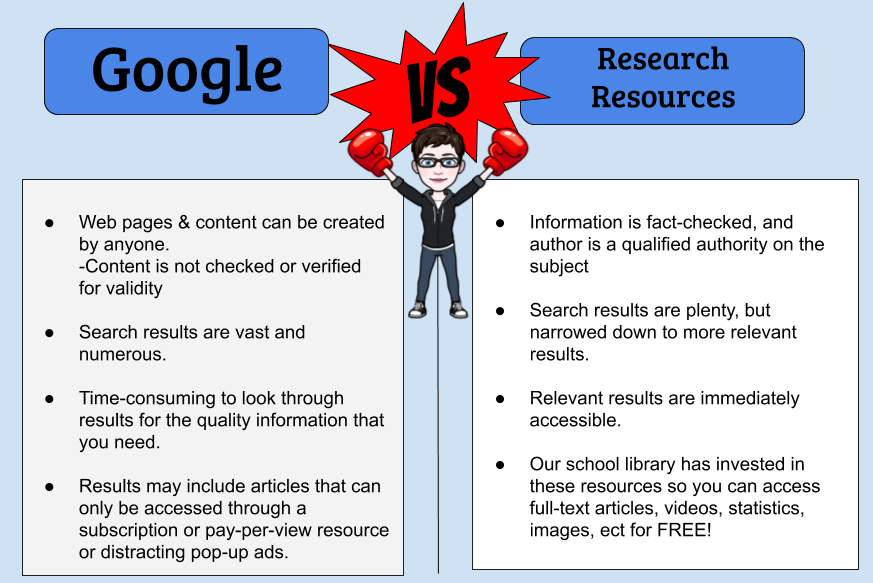
Google and other search engines will retrieve a ton of information, but the Cuesta Library subscribes to a number of databases that give you access to information not available through other search engines. As depicted in the image below, you can see that the Cuesta Library databases give you access to resources that are part of the "deep web," like scientific reports, conference proceedings, etc. Another bonus is that many of the resources available through the Cuesta Library are scholarly or peer- reviewed, meaning they have been reviewed by other experts. Because of this, you will spend a lot less time evaluating information than if you were to do a standard Internet search.

An alternative to Google would be Google Scholar, which retrieves scholarly articles only. Anything that shows HTML or PDF on the right of the entry is usually a free, full text article.
Authority
Bias
Scope
Purpose
Currency
Ideas adapted from Jim Kapoun's article, "Teaching Web Evaluation to Undergrads," which appeared in College and Research Libraries News, July/August 1998: 522-523.